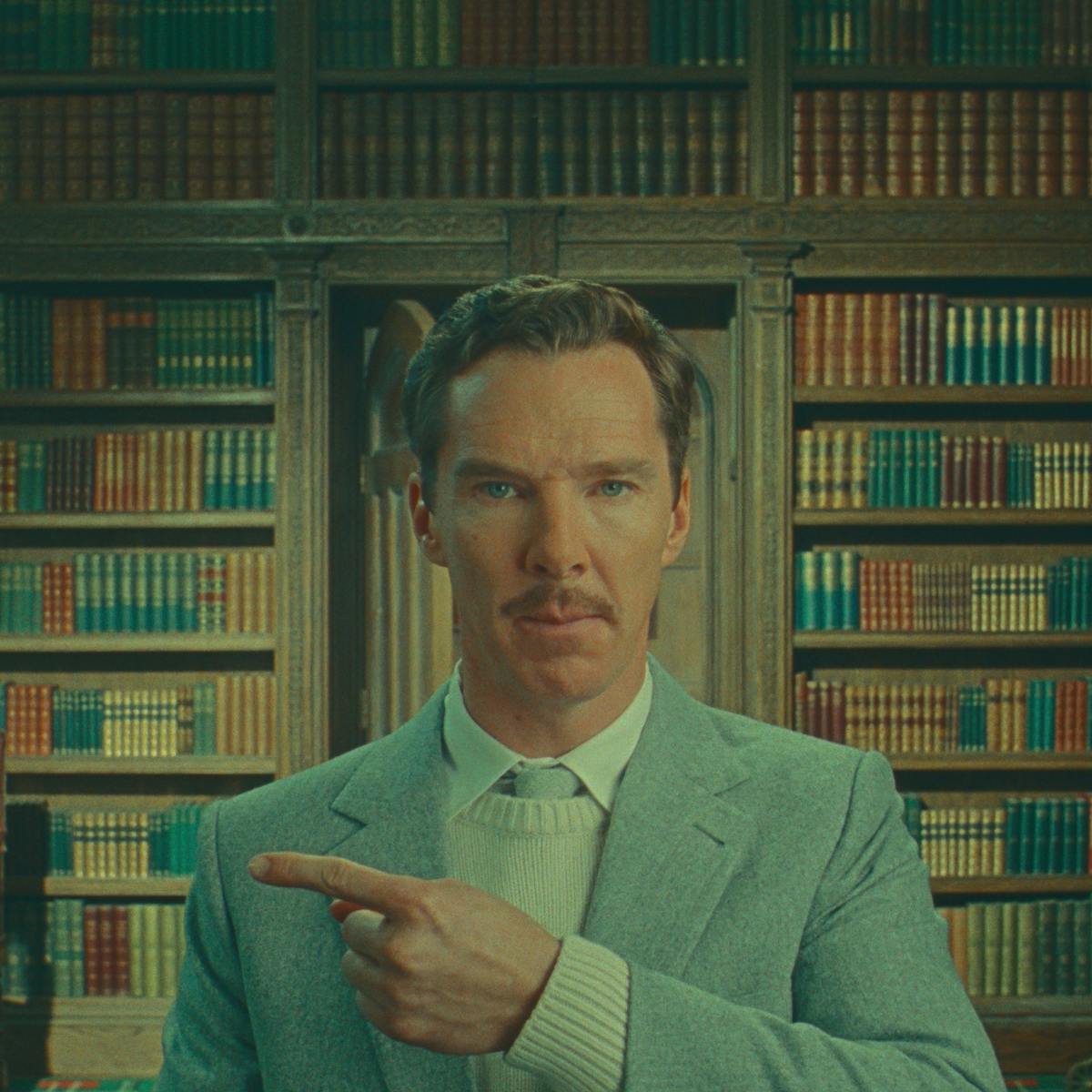Benedict Cumberbatch plays a desperate father transformed by his son's puppet in Abi Morgan’s imaginative and visceral series, Eric.
Few actors have demonstrated as wide a range — and earned as much acclaim — as Benedict Cumberbatch. He’s played real-life figures such as Alan Turing in The Imitation Game; Marvel’s larger-than-life Doctor Strange; and literary icons from Sherlock Holmes in Sherlock to Patrick Melrose in the Emmy-nominated series and The Hobbit franchise’s formidable dragon Smaug.
Yet Abi Morgan’s 1980s-set limited series Eric finds the Emmy-winning actor in a role unlike any other in his 20-year career: as both a brilliant puppeteer and his gruff blue puppet alter ego. Cumberbatch plays Vincent, whose creation of the cheery, renowned children’s television program Good Day Sunshine belies his turbulent relationship with his wife Cassie (Gaby Hoffmann) and son Edgar, played by newcomer Ivan Howe. When Edgar suddenly goes missing from the family’s New York City home, Vincent stumbles upon his son’s drawings of Eric, a furry puppet inspired by the imaginary monster living beneath the nine-year-old’s bed. He sets out to bring Eric to life, convinced that if the puppet appears on TV, their fraught relationship will be rectified and Edgar will return home.
“It’s just so fresh,” says Cumberbatch, who executive-produces the series, of Eric’s conceit. “It’s such a bizarre concept and, on the page, one of those things that makes you go, Okay, this is teetering on the edge of impossible and ludicrous, and it’s going to take everybody pulling in the same direction with everything they’ve got.”

Eric and Vincent (Benedict Cumberbatch)
What begins as a terrifying journey to find a missing child — led by N.Y.P.D. Detective Michael LeDroit (McKinley Belcher III) — evolves into a powerful exposé of the epoch and a genre-defying portrait of redemption and creativity. “The scale of originality is just breathtaking,” says Cumberbatch. “It’s a crime procedural, a relationship drama, a wild fantasy. It’s thematically about so much of that very turbulent time in the 1980s — the crisis of police corruption, homophobia, racism, homelessness, the crack epidemic, the AIDS epidemic. It makes it a really thrilling page-turner, but you’re invested because of how rich and detailed these characters are. We’re not just fulfilling the functions of drama; the drama is as much about how that affects us.”
Driving the singular series is the titular puppet, Eric, who becomes, in the words of Cumberbatch’s Emmy-nominated co-star Hoffmann (Girls, C’mon C’mon), Vincent’s “Jungian shadow-self, which we all have, but we don’t usually have the privilege or terror of having come to life.” Although Eric was predominantly brought to life by actors Olly Taylor, Laurence Moran, and Phill Woodfine, Cumberbatch donned the suit at a few points, and mastered puppetry for the Good Day Sunshine scenes. “There was a moment where it had been a long day, and [Cumberbatch was] lying down, getting all these notes from the director and the dialect coach, then I had to run in and give him notes on his puppetry,” says puppet captain Raymond Carr. “I was like, ‘Dude, do you need a break? If you want, the other person can come in and do it?’ and he was like, ‘No. I just want to get this right.’ So it was cool to see him respect the medium and the art form enough to do his best to make it look good.”
Eric accompanies Vincent as he drowns in guilt and a rapidly accelerating alcohol addiction, fracturing even further from his already-alienated wife and jeopardizing his role on Good Day Sunshine. “He’s the best of us. He’s the worst of us,” Cumberbatch says. “He’s a creature, like most monsters are, who comes from all of us.” While Eric at points embodies the depth of Vincent’s darkness, he also catalyzes the desperate character’s transformation, bridging the estranged father and son and symbolizing a beacon of hope for Vincent that helps him emerge from his downward spiral. “He becomes a huge part of what needs fixing, but also a guiding light as to how to do it,” says Cumberbatch. “It’s a reflection of what a monster is, whether it’s bad behavior, fear, vulgarity, or a sort of unfiltered want and animal need, and how all those things fit into a world.”

Benedict Cumberbatch
With Emmy and BAFTA winner Morgan and director Lucy Forbes (This Is Going to Hurt, The End of the F***ing World) also executive-producing the series, Eric marks yet another partnership with renowned creatives for Cumberbatch. The actor counts directors Steve McQueen, J.J. Abrams, and Sam Mendes among his past collaborators, and in the past two years alone, he’s earned his second Academy Award nomination for his role in Jane Campion’s adaptation of The Power of the Dog and played the title character in Wes Anderson’s Oscar-winning short The Wonderful Story of Henry Sugar. “The interaction with Eric, the interaction with this crazy character, just the whole journey of it,” Cumberbatch describes, “it’s all very much stuff that was about trust, and with a lot of people I’ve not worked with before who have great pedigree.”
Despite Eric’s at-times heartbreaking narrative and the emotional strain of playing Vincent, Cumberbatch delivers a profoundly empathetic and wholly original performance. “I’ve never seen anyone who’s so open and vulnerable, and on set he totally brings his A-game,” Morgan says of the actor. “There weren’t that many people who could do that role,” executive producer Jane Featherstone adds. “It’s such an extraordinary tour de force of a part, and Benedict was the right person for it.”




